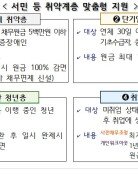Global supply chain challenges hit Korean economy
Global supply chain challenges hit Korean economy
Posted October. 05, 2021 07:26,
Updated October. 05, 2021 07:26
Coupled with production disruption coming from China’s power shortage, countries in Southeast Asia shutting down borders due to the pandemic, marine transport difficulties, the Korean economy suffers from a global supply chain shock. With domestic production, consumption and investments declining in August, the situation may impact exports, which achieved a 65 year high as of last month.
Korean companies in China are frequently forced to suspend operations, as provincial governments are limiting or suspending power supply due to the government’s suspension of Australian coal imports due to trade conflicts with Australia. Korean manufacturers of electronic goods, textile and apparel in Vietnam, Indonesia and Malaysia are seeing operation rates drop to under 20%. Such conditions signal a serious disruption ahead of major shopping events such as US Black Friday (Nov. 26) and China’s Singles’ Day (Nov. 11).
The number of automobiles sold by Hyundai Motor and Kia Motors in September also declined by 20% from last year as the car manufacturer suffered from semiconductor supply shortage. Small businesses are unable to ship their goods due to marine transport difficulties. Though logistical volume is rising due to restoring consumption at advanced economies, the loading and unloading at major ports is being delayed while shipping costs soar. To make matters worse, international oil prices, LNG and other fuel and raw materials costs are skyrocketing as well. Many voice concerns of the risk of stagflation, which occurred during the oil shocks of the 1970s when short supply of oil caused inflation and recession at the same time.
This supply chain shock exceeds levels that companies at the individual level can cope with, as its cacao is quite complicated: power struggle between the U.S. and China, COVID-19, response to carbon neutrality. The government should waste no time in working with companies to prepare mid-long term strategies to respond to evolving global supply challenges.






